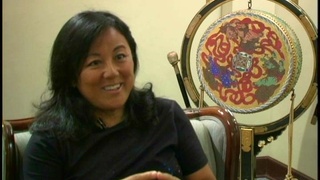Interviews
How Camp Notes was published
One of my instructors, I think, at UCI said, “You know, there are a couple poets who are coming in from San Francisco, and do you have room in your house to put – to put them up?” Because he had asked them to come, but he didn’t have enough money to put them up in a hotel, and – and so I said, “Well sure, if they don’t mind sleeping in a – on a day bed, you know, in the living room.
And so then Alta, who had head started the Shameless Hussy Press in San Francisco, and her – and her boyfriend at that time, had come. And so we were sitting around in the living room talking, and Alta said, you know, “Bob said that you had some poems that were – that you write poem. Do you have any more of them that—” you know, she had read that were kind of interesting, and I said, “Oh yeah, I have a shoebox full of poems,” so I took them out. And she looked – she and Angel, was it – her then-husband, and they looked through it, and they said, “These are really great,” you know, “We’d like to publish—”
And so the following day, she said, “Angel and I were talking, and we’d like to publish the whole thing,” and I says, “You’re kidding.” And she says, “Well, we – the Shameless Hussy Press hasn’t quite gotten off the ground yet, but we’re thinking of, you know, publishing some—" there was a young man who was a gay guy in San – people who were unpublished before – you know, unpublishable before, and so she – so then she asked me if I – if she could take about 20 of my poems. So that became the basis for the Camp Notes book, and it was first published by the Shameless Hussy Press in 1976.
Date: August 7, 2018
Location: California, US
Interviewer: Sharon Yamato
Contributed by: Watase Media Arts Center, Japanese American National Museum


